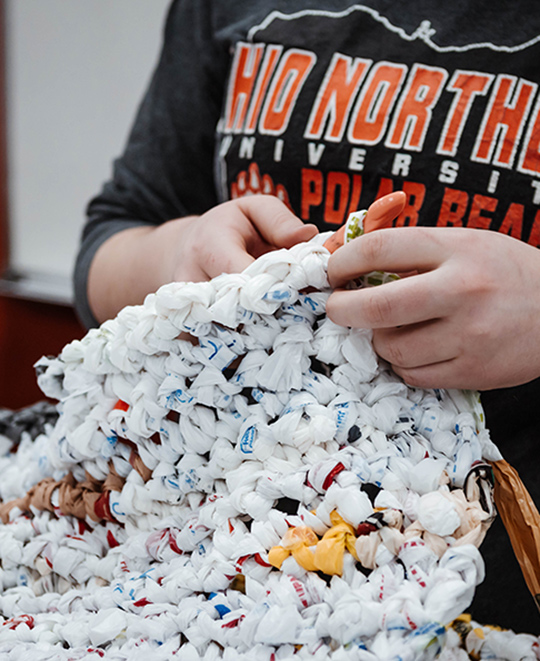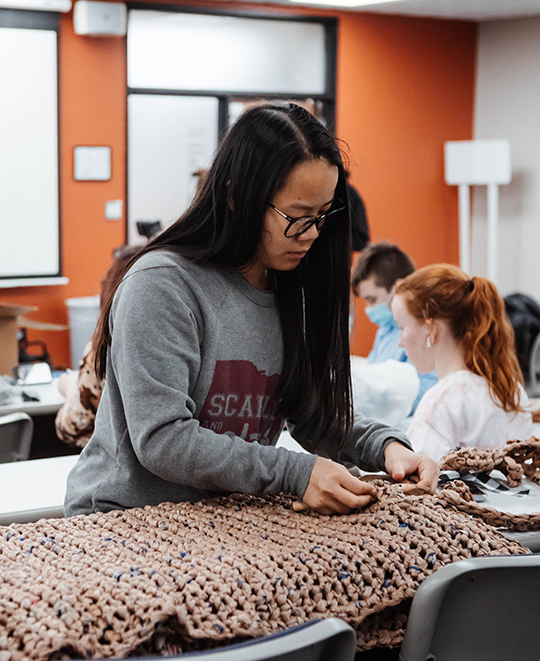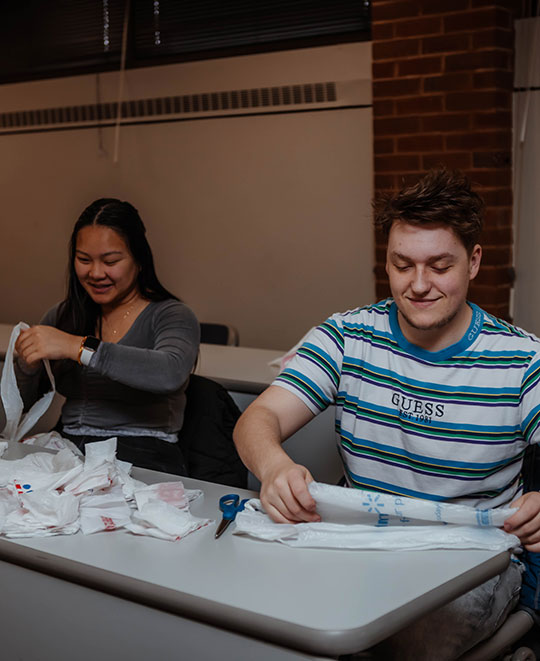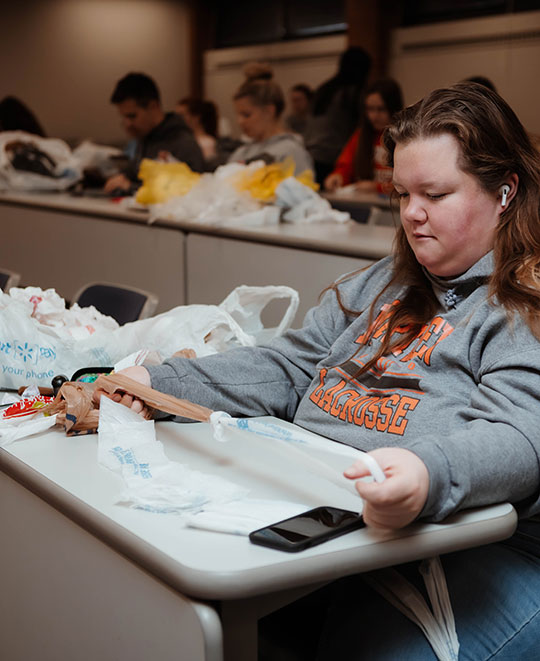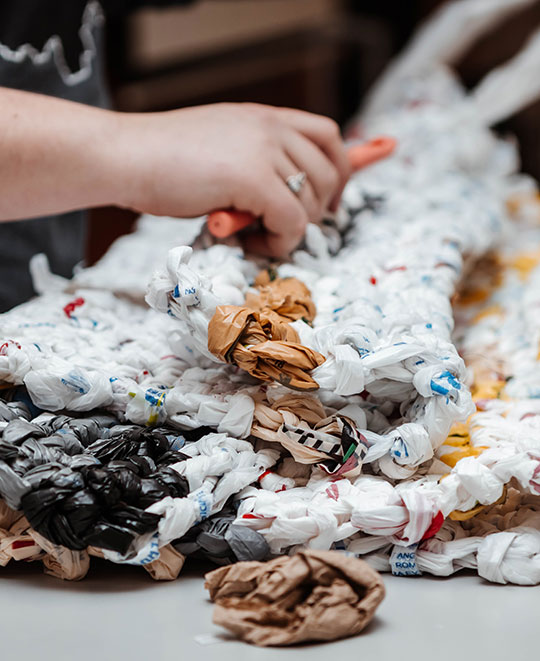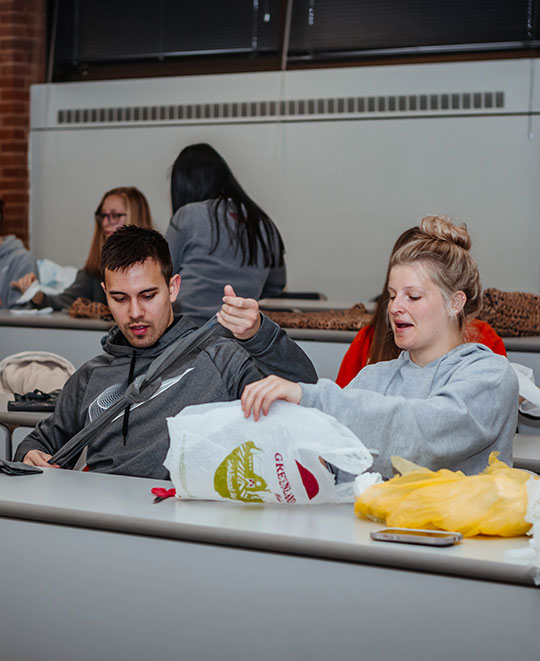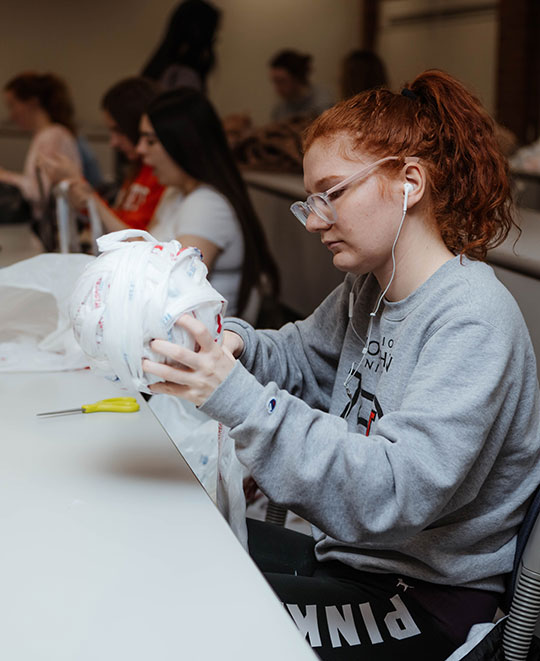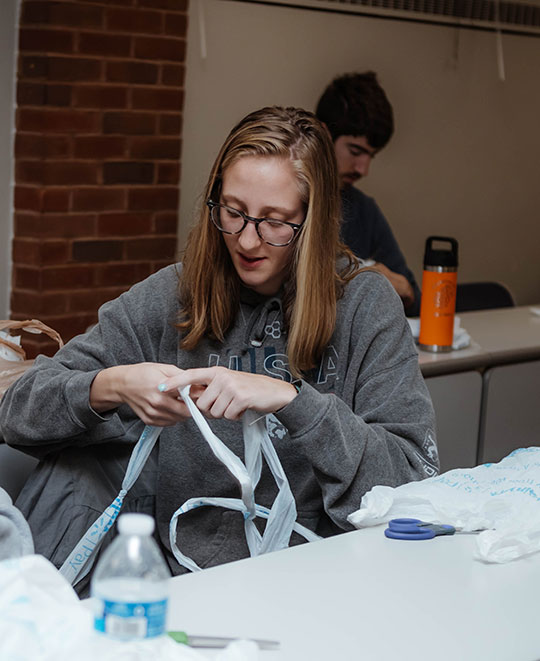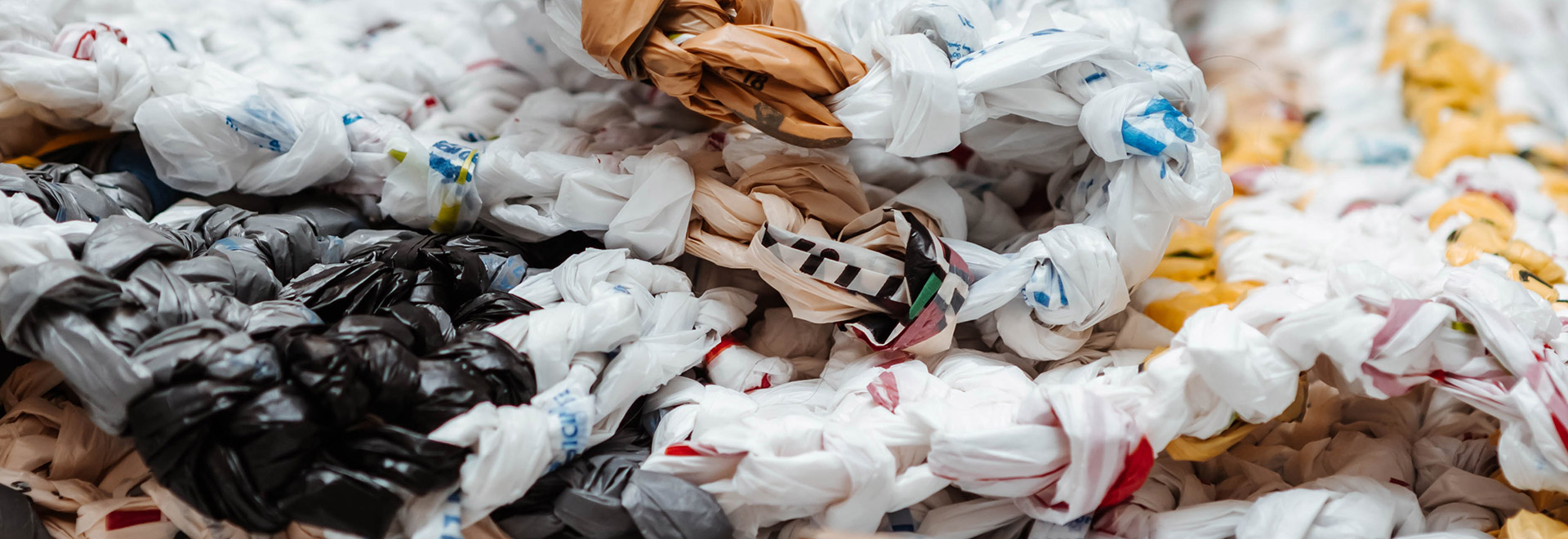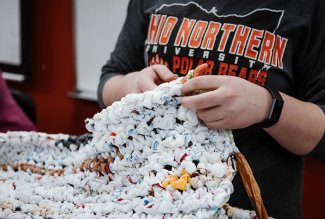
ONU students transform plastic grocery bags into bedmats for the homeless
Despite the best intentions of well-meaning people around the world, plastic is not being recycled at anywhere near the rates the public has been led to believe. A 2018 National Geographici article was one of the first to put a number on the problem when it announced that only about 9% of all single-use plastic waste on Earth is actually turned back into a new product. The other 91% is either buried, burned or dumped in the oceans.
NPR and PBS Frontline investigated America’s plastic problem in 2020 after China stopped importing plastic waste from other countries. With millions of tons of pop bottles and plastic bags no longer out of sight and out of mind, the scope of the problem became too big to ignore. Adding to the crisis was the gut punch of the realization that the recycling efforts and initiatives of the past 30 years were largely based on a lie. The NPR article that resulted from the investigation, “How Big Oil Misled The Public Into Believing Plastic Would Be Recycledii,” didn’t tiptoe around the reasons why the Pacific Ocean has an island-sized mass of floating trash or why tiny plastic particles called microplastics are now being found in human blood.
When faced with such betrayal of the public trust it is easy to become discouraged and give up. But the current generation of Ohio Northern University students weren’t taught how to recycle: they were born into a world where recycling initiatives had already taken hold. They have only known a world where plastic has its own receptacle next to the one for everything else, so is it reasonable to expect them to abandon the whole idea of recycling just because the current method doesn’t work as well as we thought?
On Saturday, March 26, 2022, the ONU chapter of Christian Pharmacist Fellowship International (CPFI) answered that question with a resounding “no” when they led their fellow students in a socially and environmentally conscious effort to transform donated plastic grocery bags into bed mats for the homeless using something called plarn.
Plarn, or plastic yarn, is made from strips of plastic bags that are looped together to form a continuous strand, which can then be crocheted like traditional yarn into a variety of products. In addition to bed mats, the internet is full of tutorials for making plarn tote bags, can cozies, rugs, laundry baskets—basically anything that can be made by weaving or crocheting.
“My roommate and I have always kept our plastic grocery bags because we always thought that we would have a use for them later, but the number of plastic bags that we had and the number of times we had a need for them was nowhere near equal,” says fourth-year pharmacy student and event organizer Alexis Klotz.
Klotz came up with the project last year as a way to help first- and second-year pharmacy students attain community service hours required by the College of Pharmacy. She learned how to crochet plarn bed mats from her grandmother, who used to make them herself until working with plarn became too difficult for her. Klotzpicked up where her grandmother left off and brought a contingent of ONU students with her. Apart from the three dozen students who helped at the event, students from CPFI, Alpha Phi Omega and the Professional Association of Women in Science helped collect bags and spread the word about the event across campus.
“I could not be more blessed with the campus response to this project,” she says. “It started as a very small idea in my head that I was consistently worried would not live up to my expectations. But in the two years that we’ve done it — even during COVID last year — it has greatly exceeded my expectations. In fact, if CPFI continues to do this project next year, we won’t have to collect any plastic bags due to the overwhelming generosity of the campus community already.”
Klotz says she learned about the problems with plastic recycling in a Visual Literacy class she took her sophomore year. She knows that weaving 2,000 plastic bags into a handful of bed mats isn’t going to reverse the problem of plastic waste, but it is an innovative response that provides something of value to the homeless community. Unfortunately, far too many individuals, especially those with mental illness, live outdoors in the U.S.’s major cities, unable or unwilling to find space in shelters. The mats provide a comfortable place for those living on the streets to rest.
And, as far as bed mat material goes, plarn is surprising effective. Not only is it naturally tangle-free, making it easier to crochet, but it is non-organic so it doesn’t attract lice or bed-bugs the way natural fabrics do. In other applications, plarn’s water resistance makes it great for making tote bags for wet swimsuits after a trip to the pool or the beach.
Whether it is turning plastic bags into bed mats, or simply refilling a water bottle from one of the many bottle-filler equipped drinking fountains on campus, ONU students are proving every day that there are small, effective ways to combat a big problem.
ihttps://www.nationalgeographic.com/science/article/plastic-produced-recy...
iihttps://www.npr.org/2020/09/11/897692090/how-big-oil-misled-the-public-i...
